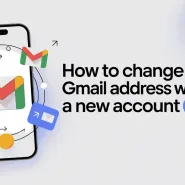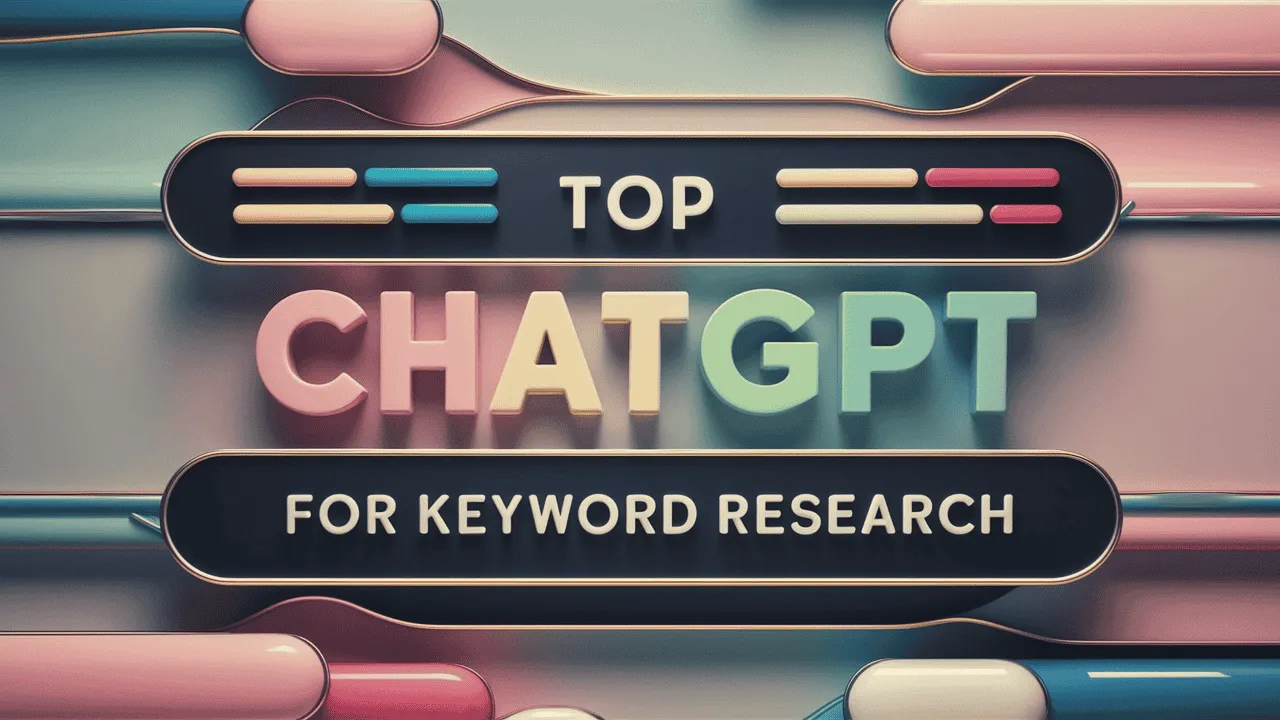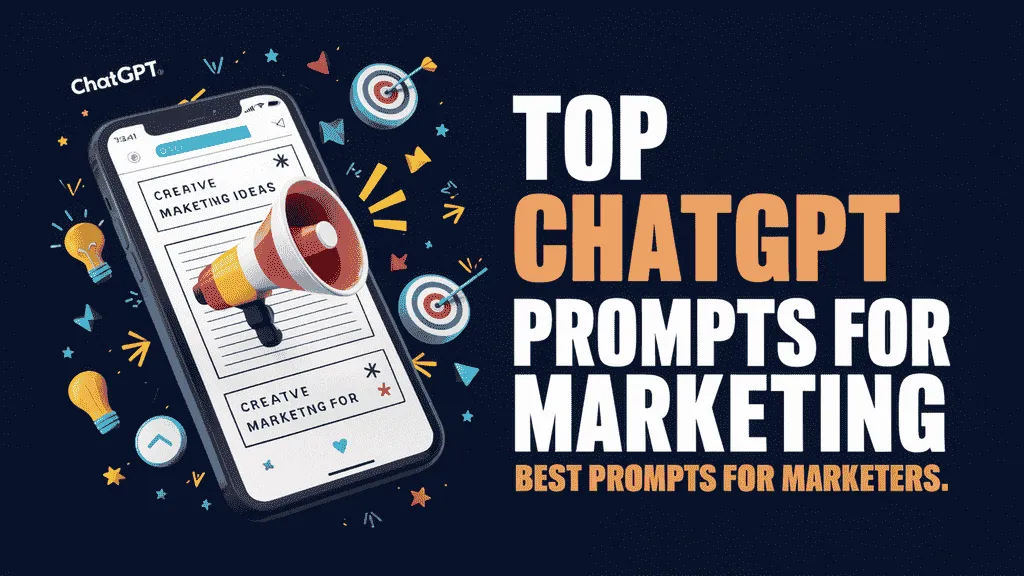Digital marketing is more competitive than ever. To succeed online, you need to find the right keywords. These keywords help your content reach the right audience and rank better on search engines. That’s why many marketers and business owners now use chatgpt for keyword research. It’s fast, smart, and easy to use.
This guide by Owrbit will show you how to use chatgpt prompts for keyword research to improve your SEO and content strategy. With just a few well-written prompts, chatgpt for keyword research can give you a list of useful keywords, help you understand what your audience is searching for, and even suggest trending topics in your niche.
Even if you’re just starting out, chatgpt prompts for keyword research makes the process simple. It saves you time by doing the hard work for you. Instead of spending hours doing manual research, you can use chatgpt prompts for keyword research and get results in seconds.
Using chatgpt prompts for keyword research means you don’t need expensive tools or complicated software. You just need to know what to ask. With the right chatgpt prompts for keyword research, you’ll have a powerful way to plan content, attract more visitors, and grow your online presence.
Whether you’re a blogger, marketer, or business owner, learning how to use chatgpt for keyword research is one of the best things you can do in 2025. Let Owrbit help you unlock the full potential of AI-powered keyword discovery.
Let’s now explore the most effective chatgpt prompts for keyword research and start improving your SEO today.
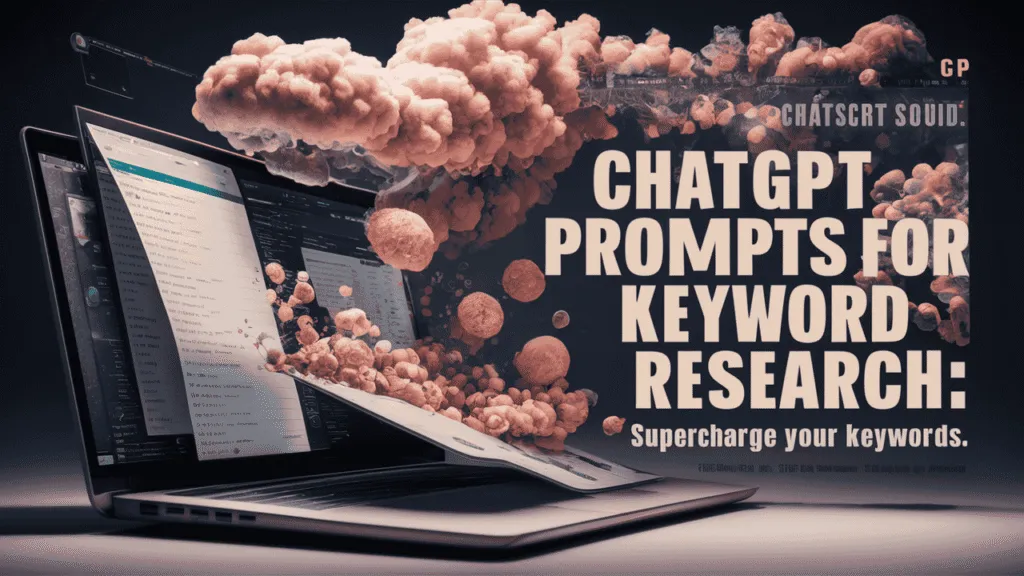
Introduction to Keyword Research :
Keyword research is the process of finding and analyzing words or phrases that people type into search engines like Google. These keywords help you understand what your target audience is looking for online. When you use the right keywords in your content, you have a better chance of ranking higher in search results, getting more visitors, and growing your online presence.
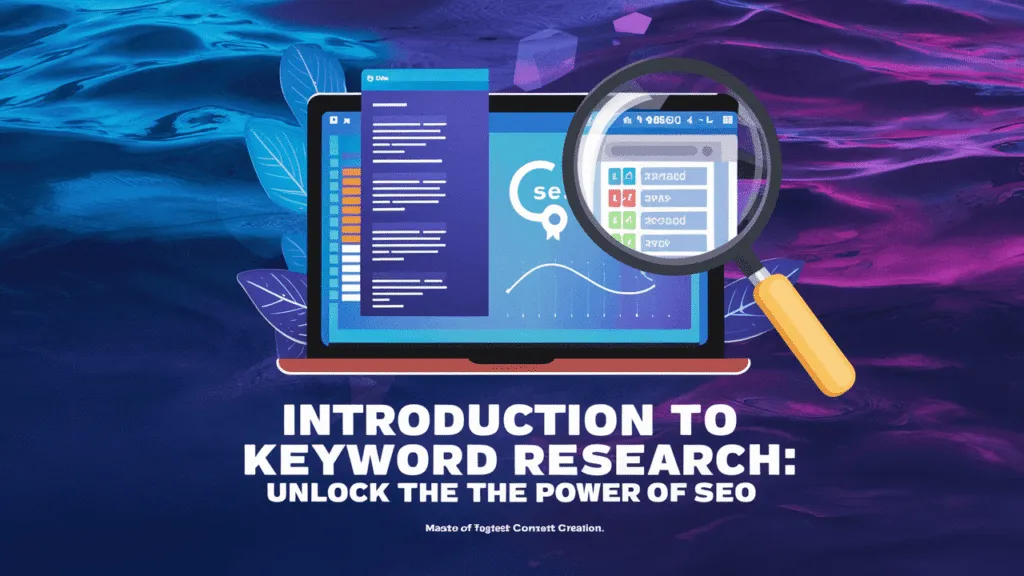
Good keyword research is the foundation of any successful SEO strategy. It helps you discover what topics your audience cares about, how competitive certain keywords are, and what kind of content you should create. Whether you’re writing blog posts, building landing pages, or running ad campaigns, keyword research plays a key role in attracting the right traffic.
In 2025, using smart tools like chatgpt for keyword research can make this process much easier and faster. With the right chatgpt prompts for keyword research, you can quickly generate keyword ideas, uncover search intent, and find opportunities that give your content a competitive edge.
Importance of Keyword Research in SEO :
Keyword research is one of the most important steps in any SEO strategy. It helps you understand what your audience is searching for, so you can create content that meets their needs. Without proper keyword research, even the best-written content may not reach the right people.

When you do keyword research, you discover the exact terms and questions your target audience types into search engines. This allows you to use those keywords in your titles, headings, and content, making it easier for search engines like Google to show your page to the right users.
Here’s why keyword research is so important in SEO:
- It boosts visibility: By targeting the right keywords, your content is more likely to appear on search engine results pages (SERPs).
- It drives targeted traffic: You attract visitors who are already interested in your topic, product, or service.
- It improves content planning: Keyword insights help you choose topics that your audience cares about.
- It reveals user intent: You can understand if people are looking for information, ready to buy, or comparing options.
- It helps you stay ahead of competitors: Knowing which keywords your competitors rank for gives you ideas and opportunities to do better.
In short, keyword research gives you a clear direction for your SEO and content marketing efforts. And now, using tools like chatgpt for keyword research with effective chatgpt prompts for keyword research makes the process faster, smarter, and easier—especially in 2025’s competitive digital world.
The Role of AI in Keyword Research :
As digital marketing grows more advanced, artificial intelligence (AI) is playing a bigger role in keyword research. Traditional keyword tools are helpful, but they often require manual work and technical knowledge. AI tools like ChatGPT are changing that by making keyword research faster, easier, and smarter.
AI understands how people search online. It can quickly analyze search patterns, suggest related keywords, and even understand the intent behind a search query. This helps marketers create better content that matches what people are really looking for.

One of the best examples of this is using chatgpt for keyword research. With the right chatgpt prompts for keyword research, you can:
- Discover fresh keyword ideas
- Group keywords by topic or user intent
- Identify long-tail keywords with less competition
- Explore trending topics in your niche
- Generate content ideas based on search queries
AI also helps avoid guesswork. Instead of spending hours finding keywords manually, you can use chatgpt for keyword research and get results in seconds. This is especially useful for bloggers, small businesses, and SEO beginners who want to compete with larger brands.
Using chatgpt prompts for keyword research isn’t just a time-saver—it’s a smart strategy to stay ahead in SEO.
Benefits of Using ChatGPT for Keyword Research :
Using ChatGPT prompts for keyword research can completely change the way you plan your SEO strategy. Instead of relying only on traditional tools, you can use AI to get fast, accurate, and creative keyword ideas. Whether you’re a beginner or an experienced marketer, ChatGPT can make your keyword research much easier and more effective.
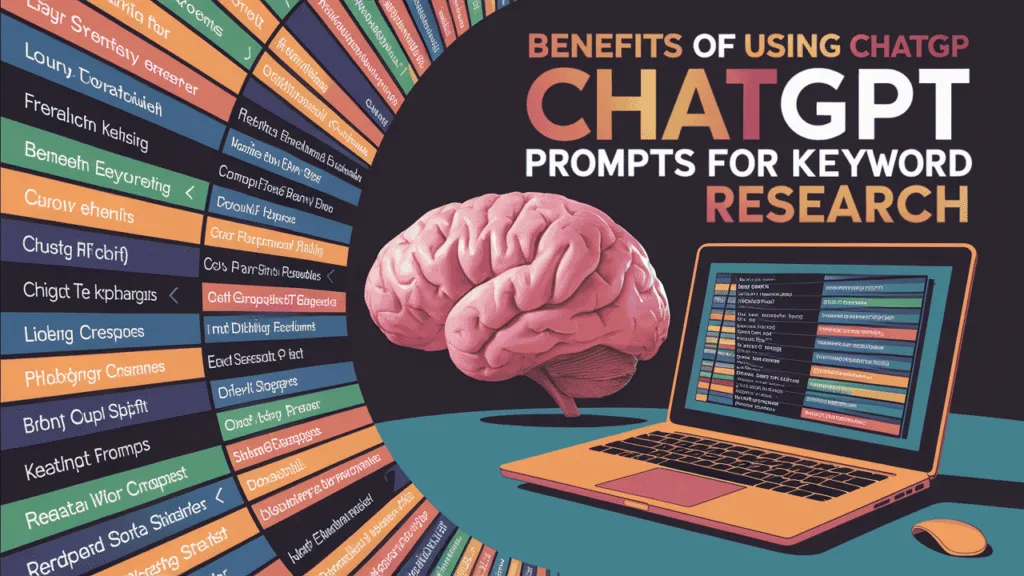
Here are some key benefits of using ChatGPT for keyword research:
- Quick Keyword Ideas
- With the right ChatGPT prompts for keyword research, you can generate dozens of keyword suggestions within seconds. This saves you a lot of time compared to manual research.
- Better Understanding of Search Intent
- ChatGPT helps you understand what users are really looking for when they search certain terms. This helps you create content that matches their needs and ranks better.
- Find Long-Tail Keywords Easily
- Long-tail keywords are specific phrases with lower competition. ChatGPT for keyword research is great at finding these hidden gems that can bring targeted traffic to your site.
- Explore Trending Topics
- ChatGPT can suggest keywords based on current trends, helping you stay relevant and ahead of your competitors.
- Organized Keyword Clusters
- You can use ChatGPT prompts for keyword research to group related keywords into categories or clusters, making it easier to plan your content strategy.
- Get Content Ideas Based on Keywords
- After finding keywords, you can ask ChatGPT to suggest blog titles, outlines, or article ideas based on those keywords. This helps you move from research to writing faster.
- Cost-Effective Alternative
- Many keyword tools require expensive monthly plans. ChatGPT for keyword research offers a powerful alternative that’s accessible and budget-friendly.
- Saves Time and Effort
- Instead of switching between multiple tools, you can get everything—keywords, ideas, clusters, and more—just by using smart ChatGPT prompts for keyword research.
In short, ChatGPT makes keyword research faster, smarter, and more creative. With the right prompts, it becomes a valuable tool for building content that ranks and connects with your audience.
Top ChatGPT Prompts for Keyword Research by Owrbit :
Now that you understand the power of using ChatGPT for keyword research, it’s time to explore the best prompts that can help you get fast, useful, and targeted keyword ideas. These ChatGPT prompts for keyword research are designed to save you time and give you high-quality results—whether you’re writing a blog post, creating product pages, or planning a content calendar.
Here are some of the top ChatGPT prompts for keyword research you can start using today:
Checkout Top ChatGPT Prompts for Website Creation: Your Prompt Guide
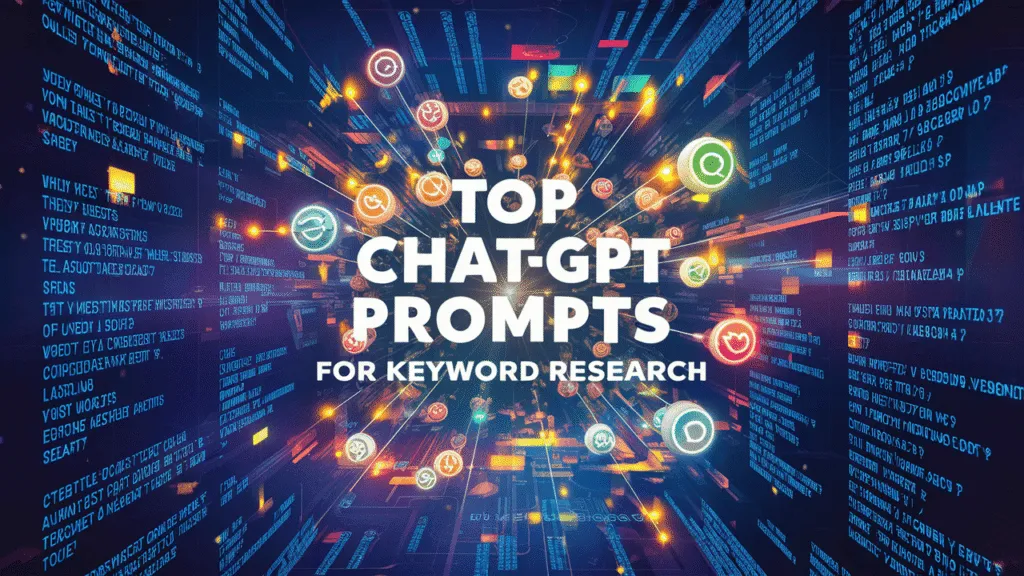
Prompt 1: Broad Topic Ideation :
Prompt:
“Act as an SEO content strategist. Come up with 10 broad topic ideas for a blog about [Your Niche] based on search demand.”
Use Case: Great for the first step in content planning or pillar content building using ChatGPT for keyword research.
Prompt 2: Expanding Keyword Scope :
Prompt:
“Based on the seed keyword ‘[Your Seed Keyword]’, list 20 related keywords, including synonyms and different user search phrases.”
Use Case: Helps expand your keyword list to import into tools like Ubersuggest or SEMrush. Use chatgpt prompts for keyword research to get more detailed variations.
Prompt 3: Target Audience Focused Ideas :
Prompt:
“I have a blog on [Your Niche]. Suggest 15 organic blog topics that would connect with [Your Target Audience] and increase organic traffic.”
Use Case: A great way to match keywords with the language your audience actually uses.
Prompt 4: Finding Long-Tail Keywords
Prompt:
“Using the keyword ‘[Main Keyword]’, suggest 10 long-tail keyword phrases (4+ words) users might search when looking for specific solutions.”
Use Case: Perfect for discovering highly specific, low-competition keywords through chatgpt for keyword research.
Prompt 5: Questions as Keywords :
Prompt:
“Create a list of 10 question-based keywords about [Your Topic], starting with who, what, where, when, why, and how.”
Use Case: Ideal for FAQ sections, featured snippets, or educational content using chatgpt prompts for keyword research.
Prompt 6: Phrasal Prepositions :
Prompt:
“Write 8 prepositional keyword phrases based on ‘[Your Core Keyword]’ such as ‘keyword research for beginners’ or ‘tools without subscriptions’.”
Use Case: Great for finding modifiers that bring user intent into focus.
Prompt 7: Classify by Search Intent :
Prompt:
“Using this list: [Your Keywords], classify each keyword by search intent (informational, commercial, transactional, or navigational) and explain why.”
Use Case: Helps you decide content type—blog, product page, comparison—using chatgpt for keyword research.
Prompt 8: Content by Search Intent
Prompt:
“For the keyword ‘[Your Keyword]’, suggest 3 content ideas targeting different user intents (e.g. how-to, product comparison, or purchase guide).”
Use Case: Best for building a content funnel with chatgpt prompts for keyword research.
Prompt 9: Competitor Content Breakdown :
Prompt:
“Analyze this competitor article: [Paste URL or Content]. Break it down into main topics (H2s, H3s) and identify content gaps I can improve on.”
Use Case: Makes content planning smarter by spotting gaps with chatgpt for keyword research.
Prompt 10: Competitor Keyword Discovery
Prompt:
“Based on this article [URL/Text], what are the main and secondary keywords it targets?”
Use Case: Understand your competitor’s keyword strategy with chatgpt prompts for keyword research—no tools needed.
Prompt 11: Basic Keyword Clustering
Prompt:
“Group these keywords into relevant clusters: [Paste Keyword List].”
Use Case: Use chatgpt for keyword research to organize large keyword lists into themes for blogs, pages, or campaigns.
Example:
Input:
- “best vegan protein powder”
- “vegan protein for weight loss”
- “plant-based protein shakes”
- “high protein vegan snacks”
Output:
- Cluster 1: Vegan Protein Products
- Cluster 2: Vegan Weight Loss
- Cluster 3: Plant-Based Snacks
Prompt 12: Topic Cluster Ideas
Prompt:
“Using ‘[Pillar Topic]’ as the core idea, suggest 5-7 supporting blog post ideas and 3-5 keywords for each.”
Use Case: Ideal for building SEO content hubs with chatgpt prompts for keyword research.
Example:
Pillar Topic: “Remote Work Tools”
Clusters:
- Time Tracking Tools – Keywords: employee productivity, remote time tracking
- Communication Tools – Keywords: video call software, team chat platforms
- Project Management – Keywords: kanban boards, task trackers
Prompt 13: Local SEO Keyword Ideas
Prompt:
“Give me 10 local SEO keywords for a [Business Type] in [City/Area] based on services people usually search.”
Use Case: Great for small business websites using chatgpt for keyword research to focus on a local audience.
Example:
Bakery in Austin, TX:
- “custom birthday cakes Austin”
- “cupcake delivery South Austin”
- “vegan bakery Zilker area”
Prompt 14: Trending or Seasonal Keywords
Prompt:
“What are some seasonal or trending keywords for [Niche] for the upcoming [Season/Event]?”
Use Case: A proactive way to plan seasonal content using chatgpt prompts for keyword research.
Example:
Niche: Gardening | Event: Spring
- “best spring flowers 2025”
- “gardening checklist for spring”
- “organic vegetable planting tips”
Prompt 15: Audience-Specific Slang
Prompt:
“My target audience uses [Slang/Jargon]. Generate 10 keywords related to [Topic] using this type of language.”
Use Case: For younger or niche audiences. Helps your content match how people really talk and search.
Example:
Topic: Fitness | Audience: Gen Z
- “get gains fast at home”
- “easy gym hacks no cap”
- “low effort workout plan fr fr”
Best Practices for Using ChatGPT in Keyword Research :
ChatGPT can be a powerful assistant in your SEO toolkit, but to make the most out of it, you need to follow certain best practices. Below are some expert tips to help you use ChatGPT effectively in your keyword research workflow:
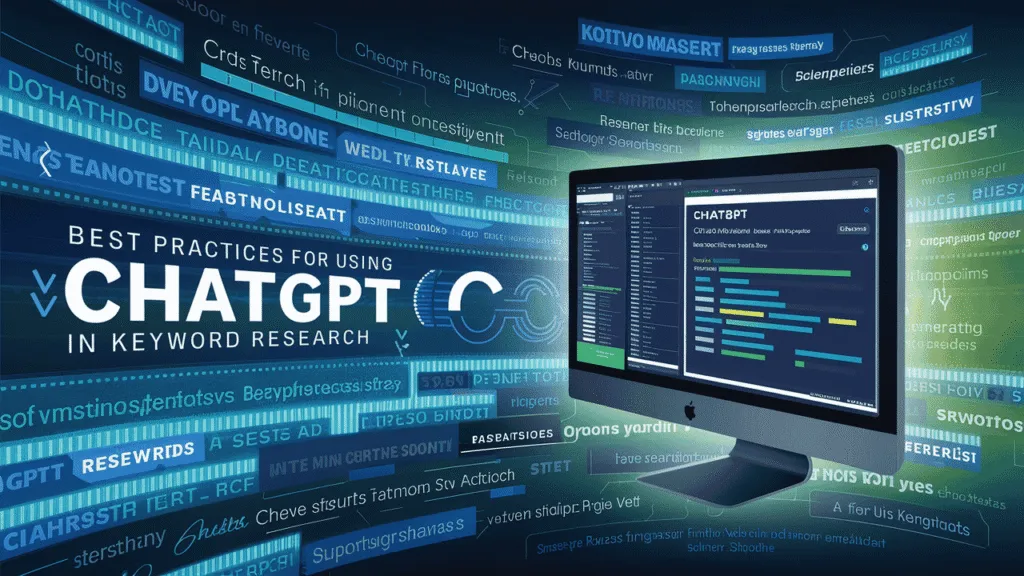
- 1. Start with clear, specific prompts
- Avoid vague instructions. Use structured prompts that include your niche, target audience, seed keywords, and intended goals. The clearer your input, the more relevant and actionable the output will be.
- 2. Combine ChatGPT with SEO tools
- While ChatGPT is excellent for ideation, pair its output with data-driven tools like Google Keyword Planner, Ubersuggest, Ahrefs, or SEMrush. This validates the keyword ideas with actual search volumes, competition, and CPC data.
- 3. Leverage search intent
- When generating or evaluating keywords, always keep user intent in mind—whether it’s informational, commercial, or transactional. This helps guide content creation and improves the likelihood of ranking.
- 4. Organize keywords into clusters
- Don’t just gather keywords—group them into topical clusters. This improves internal linking, helps with site architecture, and aligns with how Google understands topic authority.
- 5. Use long-tail variations
- ChatGPT excels at generating long-tail keyword ideas that tools sometimes miss. These are easier to rank for and can drive highly targeted traffic.
- 6. Tailor language for your audience
- If your blog caters to a specific demographic (like Gen Z, B2B executives, or local shoppers), ask ChatGPT to use their natural language and slang. This increases engagement and search relevance.
- 7. Evaluate keyword difficulty manually
- ChatGPT can estimate competition, but it doesn’t replace real SEO metrics. Use tools like Ahrefs or Moz to assess keyword difficulty before finalizing your targets.
- 8. Keep updating prompts based on results
- Monitor your rankings and traffic. If a certain type of prompt is consistently producing keywords that drive traffic, refine and reuse it. If not, experiment with variations.
- 9. Use ChatGPT for content planning too
- Go beyond keywords—ask ChatGPT to outline full content calendars, generate subtopics, FAQs, or even meta descriptions and titles based on your selected keywords.
- 10. Stay updated with algorithm changes
- Google’s algorithm evolves, and so should your approach. Combine AI suggestions with current SEO best practices to maintain long-term effectiveness.
Conclusion :
Keyword research is the heart of any strong SEO strategy, and in 2025, it’s easier and smarter than ever with the help of ChatGPT. Whether you’re starting a new blog, running an online store, or working on a client project, using the right ChatGPT prompts for keyword research can save time and give you powerful insights.
By using chatgpt prompts for keyword research, you can discover long-tail keywords, explore trending topics, and understand what your audience is really searching for. You don’t need to be an expert—just use clear, helpful prompts, and ChatGPT will do the heavy lifting for you.
We’ve shared some of the best ChatGPT prompts for keyword research in this guide. These prompts help you find new content ideas, group your keywords, check search intent, and even break down your competitor’s strategy. The more you practice using ChatGPT for keyword research, the better and faster your results will be.
Remember, ChatGPT prompts for keyword research are not just shortcuts—they’re smart tools that bring creativity and structure to your content planning. From finding the first keyword to organizing full content clusters, chatgpt prompts for keyword research makes the process smoother and more effective.
So if you’re serious about growing your traffic and reaching more people online, start using ChatGPT prompts for keyword research today. With a little practice, you’ll see just how powerful ChatGPT for keyword research can be for your website or blog.
Checkout Top ChatGPT Prompts for Website Creation: Your Prompt Guide
Discover more from Owrbit
Subscribe to get the latest posts sent to your email.
